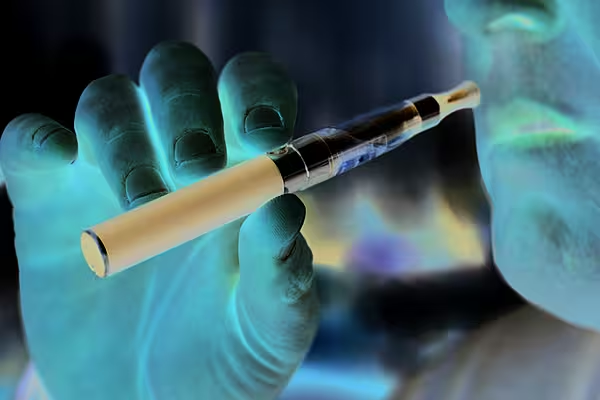The U.S. Food and Drug Administration will for the first time oversee electronic cigarettes, an attempt to bring control to a multi-billion dollar industry that has grown rapidly in recent years.
The long-awaited regulations cover products including cigar and pipe tobacco, along with vape pens and refillable vaporizers, the FDA said Thursday in a statement. The rules prohibit sales to minors, ban free samples, require package warning labels, and call for makers of products released after 2007 to seek FDA permission to remain on store shelves.
The rules will impact big companies that also make combustible cigarettes, such as Reynolds American Inc. and Altria Group Inc., as well as smaller players in the e-cigarette and vapor industry, which was worth about $5.2 billion in 2015. Congress gave the FDA authority to oversee tobacco products in 2009, but until now the agency had not finalized rules to regulate e-cigarettes and cigars.
Regulation was badly needed as the growth of e-cigarettes and vapor products use among youth contrasts with declining rates of smoking traditional cigarettes, health officials said.
“As cigarette smoking among those under 18 has fallen, the use of other nicotine products, including e-cigarettes, has taken a drastic leap,” Health and Human Services Secretary Sylvia Burwell said in a statement. “All of this is creating a new generation of Americans who are at risk of addiction.”
Time Line
The regulations are a move in the right direction, and additional action is needed from the FDA to reduce the lure of tobacco products to young people, the American Cancer Society Cancer Action Network said.
“The FDA should immediately take action to address flavorings attractive to youth in all products and the egregious industry marketing practices,” Chris Hansen, president of the group, said in a statement. “The tobacco industry has taken full advantage to exploit the lack of regulations on these issues.”
Companies will have 24 months to file pre-market applications for their products, according to the rule. The FDA then has a year to review the submission, during which the products can remain on shelves.
Manufacturers “were looking for that compromise,” said Kenneth Shea, a Bloomberg Intelligence analyst. “The critical question that no one really knows right now is, will the FDA conclude that these new products are unsafe or not?”
Accurate Information
The FDA’s action is the beginning of a “critical regulatory process to dramatically improve the public health of our country,” said David Howard, a Reynolds spokesman.
“Smokers should have accurate information and education about products that are potentially less risky than cigarettes,” he said in an e-mail. “We look forward to discussing with FDA how best to establish a reasonable structure for review and approval of new products so that public health benefits can be expeditiously achieved.”
While Altria is still reviewing the rules, the company wants FDA to change the year after which new products have to be reviewed, now 2007, to a later date, and supports legislation now in Congress to that effect, according to Steve Callahan, a spokesman.
Youth Use
House Republicans moved last month to block the FDA regulation by attaching language to a draft FDA funding bill that could come to the House floor later this month. The Senate Appropriations Committee has yet to act on its version of the legislation.
The rules are “just another example of the Obama administration’s regulatory overreach and nanny-state mentality,” Representative Tom Cole, an Oklahoma Republican, said in a statement. The language in the FDA funding bill, which he proposed, “provides the same framework for new tobacco products without needlessly subjecting small businesses to unnecessary regulations and without treating law abiding adults like naïve children.”
E-cigarette use among high school students rose 900 percent between 2010 and 2015, FDA said today, citing an earlier study done with the Centers for Disease Control and Prevention. About 16 percent of that group now use the products, according to the study.
The FDA said in 2014 that it would create rules whereby electronic cigarettes would have to pass a review to stay on the market. When he was named to lead the FDA this year, Robert Califf, a cardiologist, said that the rules were needed and forthcoming.
“We’re thinking of this as a first step versus a last step in lots of work that needs to be done,” said Robin Koval, chief executive officer of the Truth Initiative, a non-profit group dedicated to ending tobacco use. “The wild west is finally coming to an end, and that’s good for everyone.”
News by Bloomberg, edited by ESM. To subscribe to ESM: The European Supermarket Magazine, click here.














